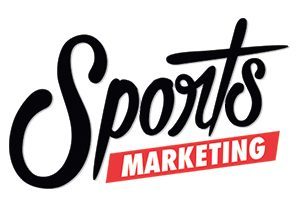Avant de vous dévoiler la suite des questions du concours adidas – Signe pour l’OM qui vous permettra de gagner un des maillots de l’OM, je vous livre un article (écrit en anglais certes, mais plus simple pour moi) sur les retombées business des J.O.
Je commence par le résultat de la bataille entre adidas et Nike, l’un partenaire officiel, l’autre roi de l’ambush; de la victoire d’Usain Bolt et de Puma; de l’action historique de la part de Li Ning lors de la cérémonie d’ouverture en terminant sur les différents enseignements de ces J.O. et leurs conséquences pour la prochaine édition des J.O. d’été, en 2012, à Londres…
Une version française est à venir…
</p>
<p><p><p>Diapositive 32</p></p></p>
<p>
As far as sponsorship is concerned, adidas seems to have won its battle against Nike. A year before the Olympics, adidas did not appear in promotional & brand recall surveys but thanks to integrated & activation pieces and the opening of its flagship store in Beijing a month before the Games, the brand managed to reach #5 position.
Puma is also undoubtedly one of the winners of this 29th Olympiads with Usain Bolt, the fastest man on track, showing his golden shoes after his victories, a gesture that is set to be worth €250m in brand exposure for Puma.
Even if authorities set up tight controls and protection around advertising spaces in the city & even invalidated some advertising contracts, the opening ceremony proved us that ambush marketing is still present. By taking the last torch relay, in front of 2.5 million viewers, Li Ning may have realised the greatest coup in the history of ambush marketing. By flying around the Bird’s Nest, Li Ning may have boosted its revenue while raising the international profile of the brand. Although correlations between Li Ning’s action and Chinese consumers’ purchase intentions are yet to be revealed, experts anticipate that these will be significant.
</p>
<p><p><p>Diapositive 32</p></p></p>
<p>
The key learning from these Olympiads is that the battle between sponsors and non-official brands is still raging and this will be a equally significant issue affecting marketing strategies for London 2012.
“Guerrilla marketing has been huge (..) more than in past Olympics” state Shaun Rein, chief executive of CMR Group and “it is harder and harder for official sponsors to stand out”, a view that is shared by Ms. Oikonomidou, director of Ogilvy PR Worldwide.
Internet will be a key battleground between sponsors and non-sponsors and this new media opens up innovative methods of engaging consumers and leveraging expensive Olympic rights, as illustrated by McDonald’s campaign, Cheer for China, or Pepsi’s “Everyone can be on the can for China”, a user-generated content competition.
The key lesson is that sponsors will need and must develop intelligent strategies if they are to make the most of their investment. The IOC is becoming more stringent and non-sponsors are becoming more sophisticated in their approach. Sponsor bands should take note and start developing and implementing their strategies now, or find themselves out-manoeuvred in 2012.
